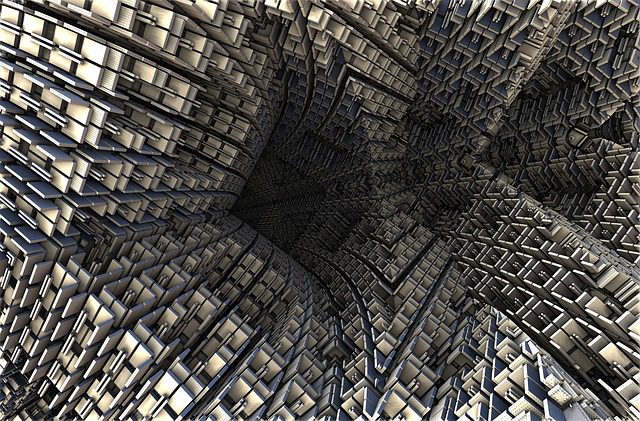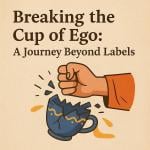
Atheist PartialMitch offered a response to my paper, Reply to the Nonsense of “Atheists Have No Worldview” (2-13-21) in the combox underneath. His words will be in blue. My words that he cites from the older paper will be in green.
*****
Before I start counter-responding, let me briefly reiterate what my argument was in this paper:
Technically, “non-belief in God” is not a belief, but a rejection of another; I (and we) agree. However (and it’s a huge “however”), atheists do highly tend to hold to certain beliefs, whether they will acknowledge them or not. And these beliefs do in fact add up to a particular worldview held by the vast majority of atheists. Briefly put, most of them are philosophical materialists, empiricists, positivists, methodological naturalists, enraptured with science as supposedly the sole valid epistemology: making it essentially their religion (“scientism”): all of which are objectively identifiable positions, that can be discussed and either embraced or dismissed.
So it’s not so much that we are saying that there is an “atheist worldview” per se. Rather, we make the observation (from long personal experience, if one is an apologist like myself) that every self-described “atheist” will overwhelmingly tend to possess a particular worldview (whatever they call it or don’t call it) that is an amalgam of many specific, identifiable things that themselves are worldviews or philosophies or ways of life.
After I laid out my general perspective on the matter, I listed “some of the many things that atheists en masse believe”: a list of eleven, that our atheist friend reacts to below. This doesn’t mean that every single atheist believes every single thing, but it’s a generality that massively holds. Synonyms for en masse include “by and large”, “all in all”, “generally”, and “on the whole.”
I didn’t indicate what I myself believed about the eleven points, so PartialMitch thinks I deny some that I do not deny at all. I fully and wholeheartedly accept #1-7. I obviously reject #8, as any Christian or theist must, because it’s philosophical materialism. I reject the second portion of #9 and believe that the Big Bang occurred because God willed it to be so. I reject #10 too because it denies the existence of God and His status as Creator of the universe. I deny #11 because science is not the only means to attain knowledge. It’s fantastic as far as it goes — in its own domain — but it is not the sum total of all knowledge or ways of arriving at it.
1) that matter exists.
I’m on my porch, wearing slippers. If I kick the metal leg of this nearby table, my toe will hurt.
So we agree on this self-evident truth.
2) that he or she exists.
Well, technically speaking, that’s the only thing I can know for sure. Cogito, ergo sum, and all that jazz. Sure, everything could be an illusion, but I lack the ego to take such a concept seriously.
We agree on this self-evident truth, too.
Remember, my point was that atheists believe certain things, and I listed what I thought were the main ones. They have a worldview and/or a philosophy (just like everyone else), whether they are aware of it or not, which consists of the totality of these separate beliefs that they accept. So every time PartialMitch agrees with one of these eleven points, he bolsters my own case (which he seems to be unaware of, too).
3) that matter can be observed according to more or less predictable scientific laws (uniformitarianism).
Show me otherwise, and I’ll take it into consideration. Science works as a description of what we observe. Those laws are codified explanations, not mystical rules. Give me some demonstrations, and then we can talk.
Now we have agreement on three straight points. He seems to think that I would deny uniformitarianism, which is ridiculous. He appears to make the usual atheist assumption (I could have almost added it to the list; at least applied to the anti-theist sub-group of atheists) that somehow Christians are inexorably opposed to science and are overall just sort of dumb and clueless.
Any Christian or other kind of theist who has spent more than three days on an active online atheist forum is fully aware firsthand of the extreme hostility towards Christians and their worldview. If I had a dime for every lie I’ve heard in these places about what “all” or “most” Christians supposedly believe or disbelieve, I’d be richer than Croesus.
4) that we can trust our senses to analyze such observations and what they mean (empiricism).
Nope. Our senses are weak, limited and flawed. Evolution is sloppy. So we have to find as many ways as possible to get around that. And researchers have to redo our observations and experiments again and again in as many novel ways as they can invent. It’s the very opposite of trusting our senses.
That is true as far as it goes, but I was speaking at a more fundamental or presuppositional level. Empiricism presupposes that our senses can make sense of reality and attain knowledge, through observation and experience, as opposed to simply generating ideas in our heads in some kind of theoretical isolated “bubble”. What I was driving at is more fully expressed in these past statements of mine:
We trust our senses for giving us accurate information about the external world. Indeed, all of science is built upon this initial premise.
We all do that naturally. A baby can do it. Does that mean it’s not valid or trustworthy or “serious” until and unless we can fully explain it? Clearly not.
It’s only recently, in fact, that we have advanced in neuroscience to the extent that we can actually explain the particular processes that go into sight and storage of such information obtained by sight into our brains.
But we all had trusted our eyesight (and other senses) all those years before we had technical explanations of it. We had created modern science before we could “prove” all the ins and outs of sensory perception. (11-17-15)
In order to do science at all (to even get it off the ground) one must accept a number of axiomatic propositions; e.g.,:
a) the external universe exists and is not illusory.
b) the universe observes scientific laws [is not chaotic].
c) these laws apply to all times and places (uniformitarianism).
d) these actual or potential realities are able to be observed and tested.
e) we can trust our senses to provide us reliable data with which to conduct these experiments, whose utility and epistemological relevance we assume without empirical evidence. (10-27-15)
5) in the correctness of mathematics, which starts from axioms as well.
Math works. Better than anything. If you are going to dismiss math, then I see no reason to take you seriously. If you’re simply being blithe, then you’re wasting everyone’s time.
Right. Now he thinks that I am somehow against mathematics (the “Christians are so ignorant and anti-intellectual that they reject obvious truths a, b, c, d that all thinking people accept” mentality). In fact, we fully agree on this, making it four out of five; and I think we would really agree on #4 also: rightly understood (as clarified).
6) in the laws of logic, in order to even communicate (not to mention argue) anything with any meaning at all.
Kinda, maybe. But doesn’t everyone? Theists do. Apologetics often relies on logic. So how is this a jab at atheism?
Once again, it’s not a jab at atheism. The list addresses the claim that atheists have no worldview. I show that they do indeed possess one, by having all or most of these beliefs. This is something we all have in common, and so it’s agreement on at least five of the first six propositions: thus rather dramatically supporting my overall argument.
7) in presupposing that certain things are absolutely true.
See my response to #6. Read it twice.
And read my reply to #6 twice. We now agree on 6 out of 7.
8) that matter has the inherent “God-like” / in effect “omnipotent” capability of organizing itself, evolving, inexorably developing into all that we observe in the entire universe. There is no God or even any sort of immaterial spirit that did or could do this, so it has to fall back onto matter. The belief in this without any reason whatsoever to do so is what I have written at length about as the de facto religion of “atomism.” [link]
We can observe matter organize itself on levels from the subatomic to the cosmic. Fusion happens in stars and bombs, crystals form wherever they can, complex organic chemicals develop on the surface of comets, circumstellar discs coalesce into planetary systems. Matter organizes itself in a near-infinitude of ways … and at no level have we seen sign of or need for divine intervention.
Exactly! He agrees again! The point is not to deny anything that we observe; rather, it’s to note that atheists accept in blind faith the idea that matter can do all these wonderful things by virtue of some inherent capacity or capability or potentiality. Atheists rarely attempt to explain the how and why of that at its deepest, most fundamental level. It’s a quasi-religious belief in the most blind, pure faith that matter alone can do all these things without “need for divine intervention.”
Seems to me like you’re the one believing in something without any reason whatsoever.
The question at the moment is not what I believe and why I believe it (which I have explained in more than 3,600 articles and 50 books, as a professional Catholic apologist), but what atheists believe and why they believe it. But in any event, all people accept things they cannot prove. That’s what we call axioms.
9) that the universe began in a Big Bang (for who knows what reason).
This is two separate things.
Yes, which is why I could agree on part A but not part B.
One, the Big Bang, which is merely an observation (originally described by a Catholic priest, Lemaître) that the currently-expanding cosmos can be traced back to a single point. This matches all other observations from all other sources using all known methods (and new ones as we come up with them).
Yet more evidence that atheists have a very definite worldview (and one which is actually in agreement with theists and Christians on many points, as this exchange demonstrates with flying colors) . . .
Two, the need for a reason. I have none. I don’t need some grand purpose behind existence, let alone an emotional or personal one.
This shows that he fully agrees with #9, thus making my case for me again.
10) that the universe created itself out of nothing (for who knows what reason), but it’s deemed more rational than the Christian believing that God is an eternal spirit, Who created the universe.
Again, you have two points here, and they are wildly divergent. You’re making a disingenuous leap.
It’s one thing to debate the rationality of cosmological models.
I take it that he agrees with the first part, since it basically re-states #9.
It’s something quite different to assert that one specific religion based on a jumbled scripture and evolving traditions with sketchy ethics and a decidedly unrighteous history is equally rational. Even if one rejects the former, it’s kinda ridiculous to jump straight to the latter.
I’m making no “leap” at all; let alone a “disingenuous” one. I’m describing what atheists massively believe. And they definitely believe that the universe somehow creating itself out of nothing, for no reason or an unknown or unknowable reason, is more rational than the Christian belief in an eternal Spirit Who created this universe. I’m simply stating the obvious.
PartialMitch’s reaction, with its quick profound insults of the Christian worldview precisely prove what I am saying. He can’t hide his intellectual hostility and condescension. It’s gotta come out. He despises and detests the Christian view at a very deep level, as fundamentally confused, ever-changing, unethical, and unrighteous.
11) that science is the only method by which we can objectively determine facts and truth (extreme empiricism + scientism).
That’s really been your point through most of this. You could have saved yourself some bullet points by leading with that.
Nonsense. None of the points up to this one asserted or even remotely dealt with the notion that science is the only way to attain knowledge; the sole epistemology. But in fact, science essentially serves as the religious view of many if not most atheists. Many atheists can’t comprehend that one can passionately love science (as I do) and yet not consider it the be-all and end-all of existence and thinking.
Similarly, many Protestants (I was one for my first 32 years or roughly half of my life) can’t comprehend how Catholics can passionately love the Bible (as I do) and yet not consider it the be-all and end-all of Christianity and theology. To adopt some belief is not the same thing as denigrating or somehow “lowering” another belief (consistent with the new one) in the scheme of things.
The answer here is the same as so many of the others: science works.
Of course it does. That has nothing to do with my argument.
It works better than any other method of understanding, and it does so in the majority of fields. After all, science is nothing more than the application of the scientific method. We come up with ideas, we test them, we see the results, and our knowledge grows from there; repeat as much as possible.
Is it the only method of understanding? That was my specific point. If he says it is, then he agrees with my description of the atheist worldview yet again. If he denies, it, what are the other means to attain knowledge?
It doesn’t take faith to accept science. In fact, all sorts of scientists are believers. You spend most of this post trashing atheists for “scientism” while ignoring the devotion to science seen in individuals across all religious and cultural divides.
Beside the point again (non sequitur). But it takes several axioms to accept science, and since they are unproven by nature, it is an act very similar to faith (acceptance of an unproven or not minutely understood proposition).
You also ignore the fact that those people who do reject science generally do it because of their religion, not because of any problems with science itself.
I agree. The sad history of Islam for hundreds of years shows that. It (on the whole) rejected reason and science alike. At least the virulent “fundamentalist” strain of it did that. It’s also the fundamentalists among Christians who reject many aspects of science.
When religions allow it, appreciation of science is common, and many deeply religious people have made incredible contributions to science.
Yep. For example, see my papers:
Christianity: Crucial to the Origin of Science [8-1-10]
Scientific & Empiricist Church Fathers: To Augustine (d. 430) [2010]
33 Empiricist Christian Thinkers Before 1000 AD [8-5-10]
23 Catholic Medieval Proto-Scientists: 12th-13th Centuries [2010]
Christians or Theists Founded 115 Scientific Fields [8-20-10]
So, yeah, I think you’re kinda straw-manning here. You’re accusing atheists of worshiping science while ignoring that science has no barriers against religious people. That countless religions people rely on it. That countless religious people love science, too.
Completely irrelevant to (and in part misrepresents) my argument . . .
Acceptance of science is not the same thing as religious belief. Atheists accept it at a higher rate than religious people specifically and only because those religions command it. That’s it. We aren’t worshiping science; we simply are not worshiping anything that would prevent us from admiring it.
What other forms of knowledge and epistemology do you also accept? You didn’t say, so you may indeed be a “science-only” atheist: precisely as I have said is a major characteristic or hallmark of the atheist worldview.
My argument has not been overthrown to the slightest degree. To the contrary, PartialMitch affirms and supports it again and again. And of course I’m delighted to see that.
I couldn’t care less about overthrowing your argument. Because you don’t seem to be making much of one. You accuse atheists of “scientism” as if most religious people are any different. You claim that science is our worldview, despite the fact that you share it.
It’s less that atheists have no worldview, and more that atheism has no worldview. The acceptance of science is, as you pointed out, independent of one’s opinion on gods.
That’s why it’s disingenuous of you to use most of these points to deride atheists. I didn’t miss your point; I was calling it what it is, disingenuous.
Of course we believe in science; so do you. The difference is that we don’t believe the other things that you do. The rest has been stripped away, but that which actually works remains. Therefore I find it foolish to claim that “scientism” is a hallmark of atheism or that it is an atheistic worldview. It’s a shared worldview that many of us have in common.
As far as other epistemology goes … you’re kinda right. Our methods of knowing (axioms and logic and the like) are tools and nothing more, and if the tool proves itself worthless, then it deserves to be discarded. Faith is not required to accept things that work.
I don’t take any sort of “revealed knowledge” seriously, and the same is true for any attempted epistemology that’s tied to it. I don’t take traditions seriously, because they are mere reflections of the cultures that formed them. And word games of any sort fail to impress me.
Finally, it’s hilarious that you make a big deal of my condescension, when your comments both here and elsewhere positively drip with disdain. Hi there, Mister Kettle, I am Mister Pot. It’s nice to meet you.
Thanks for the first round. The second in a dialogue / debate is, for some reason, quite often a more tricky, sensitive affair and many people want no part of it. They take their final potshot and split. I think that’s unfortunate, because the 2nd and 3rd rounds of a debate are where things get far more interesting and challenging.
To be honest, I don’t really consider this a debate as much as conversation. I don’t want to change your mind, and I seriously doubt you’ll change mine, but discussions are my favorite entertainment. I used to be friends with a Jesuit (he moved away some time ago), so this sort of thing is old hat for me.
My question to you is this: Do you consider science a part of your religion? If so, how? If not, then how can you consider it religion for atheists?
To me, they are different things. When you tack on the ideas you consider “deeper” or “fundamental” you’re adding your own religious needs to the topic. A follower of a nontheistic religion would have rather different fundamentals. The same is true for nonbelievers.
Science isn’t part of my religion, technically, but it’s very much a part of my worldview, epistemology / philosophy, and overall search for truth.
I say it is the “religion” of many atheists precisely because they fall prey to scientism and make it the sum of all knowledge. Thus it very much takes on several qualities of a religious view: strong allegiance, “faith” in numerous axioms, explanatory power, replacement of traditional theistic views of omnipotence with the all-powerful atom, authoritative “priest” / authority-figures like Fauci (who is a humanist), etc., etc.
Christians not only played the key role in the development of modern science, but we respect it so much that we have been willing to modify our understanding of Scripture itself based on scientific advances (a local Flood and an “old” earth would be two of those).
When you say I was “disingenuous” do you mean just certain ideas or me as a person being deliberately dishonest?
The ideas, nothing personal. This specific idea, actually.
If it’s not part of your religion, then it’s definitely not a part of mine. I have none.
The religious factors that you mentioned are specific to your own beliefs. Other flavors of Christian (like my family who are all evangelicals) would have very different views from either of us, to say nothing of followers of non-Abrahamic faiths. These things that you consider “fundamentals” seem as unnecessary to me as reincarnation or dharma probably does to you. I am not replacing your religious ideas with science. Instead, I see no reason to add them to the conversation.
***
Photo credit: TheDigitalArtist (4-21-15) [Pixabay / Pixabay License]
***
Summary: Good discussion with an atheist who seems to think he is opposing my stated position that a distinct “atheist worldview” exists, whereas he in fact confirms my viewpoint over and over.
***
















